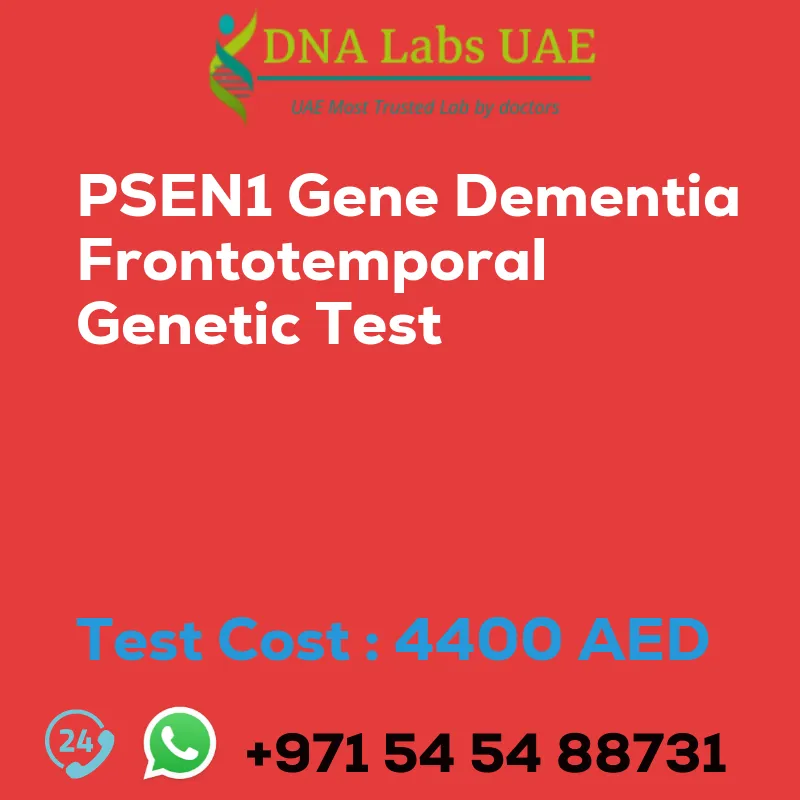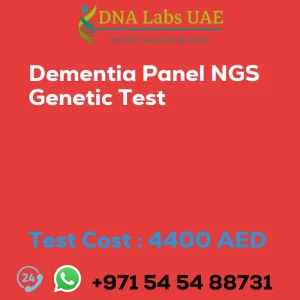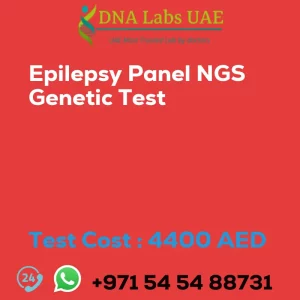PSEN1 Gene Dementia Frontotemporal Genetic Test
Test Name: PSEN1 Gene Dementia Frontotemporal Genetic Test
Components: Blood or Extracted DNA or One drop Blood on FTA Card
Price: 4400.0 AED
Sample Condition: Blood or Extracted DNA or One drop Blood on FTA Card
Report Delivery: 3 to 4 Weeks
Method: NGS Technology
Test Type: Neurological Disorders
Doctor: Neurologist
Test Department: Genetics
Pre Test Information: Clinical History of Patient who is going for PSEN1 Gene Dementia, frontotemporal NGS Genetic DNA Test. A Genetic Counselling session to draw a pedigree chart of family members affected with PSEN1 Gene Dementia, frontotemporal.
Test Details: The PSEN1 gene is associated with early-onset familial Alzheimer’s disease (EOFAD). Mutations in this gene can cause a rare form of dementia that typically develops in individuals before the age of 65. Frontotemporal dementia (FTD) is another type of dementia that affects the frontal and temporal lobes of the brain. It can cause changes in behavior, personality, and language abilities. NGS (next-generation sequencing) genetic testing is a type of DNA sequencing that allows for the analysis of multiple genes at once. This type of testing can be used to identify mutations in the PSEN1 gene or other genes associated with FTD. If a mutation is identified, genetic counseling and testing may be recommended for family members who may be at risk for developing the condition. Early detection and intervention can help individuals with these types of dementia manage symptoms and plan for the future.
| Test Name | PSEN1 Gene Dementia frontotemporal Genetic Test |
|---|---|
| Components | |
| Price | 4400.0 AED |
| Sample Condition | Blood or Extracted DNA or One drop Blood on FTA Card o |
| Report Delivery | 3 to 4 Weeks |
| Method | NGS Technology |
| Test type | Neurological Disorders |
| Doctor | Neurologist |
| Test Department: | Genetics |
| Pre Test Information | Clinical History of Patient who is going for PSEN1 Gene Dementia, frontotemporal NGS Genetic DNA Test A Genetic Counselling session to draw a pedigree chart of family members affected with PSEN1 Gene Dementia, frontotemporal |
| Test Details |
The PSEN1 gene is associated with early-onset familial Alzheimer’s disease (EOFAD). Mutations in this gene can cause a rare form of dementia that typically develops in individuals before the age of 65. Frontotemporal dementia (FTD) is another type of dementia that affects the frontal and temporal lobes of the brain. It can cause changes in behavior, personality, and language abilities. NGS (next-generation sequencing) genetic testing is a type of DNA sequencing that allows for the analysis of multiple genes at once. This type of testing can be used to identify mutations in the PSEN1 gene or other genes associated with FTD. If a mutation is identified, genetic counseling and testing may be recommended for family members who may be at risk for developing the condition. Early detection and intervention can help individuals with these types of dementia manage symptoms and plan for the future. |







